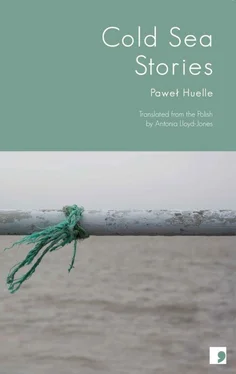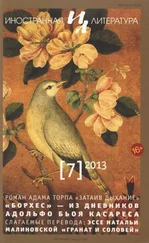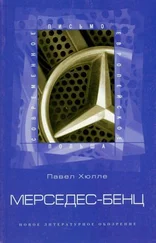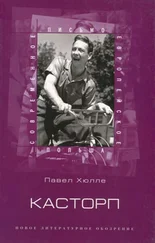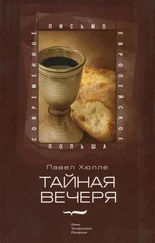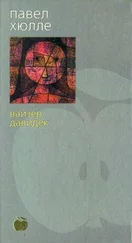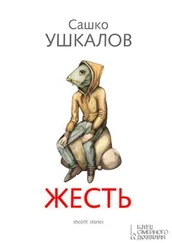Sated and distracted, heaven knows what he was thinking about. She threw a pine cone at him. Then he looked at her with eyes dark as coals, which soon, following the way she was pointing, turned towards the orange sphere of the sun. He understood that gesture. Tomorrow, when the sun rose on the far side of the forest, she would come here again, alone.
After the warm day, the air was settling in invisible layers. Low down, just above the ground, it drew in the cold and the damp. Higher up, a warmer breath of wind was distilling the essences of herbs and grass. Above all hovered the resinous scent of pines, carried from the sea on the evening breeze. By the van Dorns’ house, over which the storks were circling their nest, she felt a touch of anxiety. She thought she had seen the stranger’s face before, in the city. Could she be mistaken? And hadn’t Harmensoon been right, when, in his fiery sermons preceding the breaking of bread, he had spoken of corruption, sin and death, which always came from the cities? Just like the lorries, and the people who carried guns.
II
There hadn’t been any candles left for ages. And the stocks of oil she had collected from the houses had to be kept for winter. Meanwhile, although darkness had fallen, the appropriate number of verses had to be read aloud. Otherwise the day would not have its blessing, and as such would come to nothing. In fact it would only be a minor sin, but it was characteristic of sins that once committed, they liked to repeat themselves. If only her father were standing beside her, they wouldn’t have had to light the lamp. He knew the Book almost by heart and could recite the prophets from any point at random. But where was he now? Carefully she lit the wick and read a passage from Isaiah, the one about hidden treasures and secret hiding places. Then, to avoid wasting oil, she snuffed out the lamp and went to bed. But sleep refused to come, even though the day had been ended as it should. An owl was hooting at the Helkes’ house. A mouse was scratching in the wardrobe. A light gust of wind came flying in from the sea and set the branches in the orchard swaying.
On that day, four years ago, her father had woken her early, before sunrise. They had boarded the van Dorns’ boat, where they sat between barrels of butter and boxes of woven cloth. The journey had taken a long time: first along a canal, then down a river, until at last they had sailed out onto the sea. She remembered the large, grey sail, which tautened in the wind; she remembered the salty taste on her lips and the strange, dark-red colour of the bricks that everything in the city seemed to be made of: houses, warehouses, granaries and churches. The boat was moored at the quay, and Mr van Dorn was to spend the night on it, while she, her father and Rachela went to the house of a woman related to Harmensoon, who received them hospitably. She and Rachela had slept in one room. Next morning her father had taken them to a market, where she had found everything amazing: an electric tram came speeding along the street, there were automobiles hooting like mad, and the people didn’t walk, but ran in all directions, as if they hadn’t any time. At the quay, where dozens of other boats had appeared by now, van Dorn and her father had been busy selling their goods. She and Rachela could wander off a short way, but they weren’t allowed to talk to anyone – man or woman. She remembered that moment well: by a stall, where an old Kashubian woman was touting flounders, someone had touched her arm, and suddenly she heard a warm, familiar voice: ‘Is it you?’
‘My God, is that how my sister looks now?’ She was shocked. What would she tell her father? And what if Rachela had seen them?
But Rachela had vanished into the crowd, her father was helping van Dorn, and her sister, her older sister Hanna, was leading her by the arm, showering her with questions, every few moments kissing her on the cheek and hugging her. She didn’t even look back as they entered a narrow, cobbled alleyway, with horse-drawn carts rumbling along it. Then at some point the sisters had turned into a courtyard and, behind a chestnut tree, next to a cast-iron pump, they had gone through a gate, and up a staircase creaking with age, to the first floor.
Once in the flat, she had told Hanna about their father’s anger and distress: summoned by Harmensoon, he had stood in the middle of the chapel, and for everyone to hear him, had repeated after the elder the words of expulsion. The women in the gallery had covered their faces, the men had tugged at their hat rims, and then such total silence had fallen that you could hear the wax dripping onto the floor and the moths circling close to the ceiling. It was dreadful. After the service her father hadn’t slept all night, and in the morning, at breakfast, he had said: ‘I only have one daughter now.’
No one was even allowed to mention Hanna; thoroughly dishonoured, her name had to be forgotten in all the churches, for ever and ever. But she often thought about her. Why had she run away to the city? Was she so very unhappy with them? Was it true that the man with whom she was living in sin was the devil incarnate, like all Lutherans and Catholics? Wasn’t she afraid of the day when the Lord would come? For what she had done He might not resurrect her body, and her soul – damned for centuries – would wander in darkness and never know peace.
But Hanna wasn’t afraid of anything, least of all Harmensoon’s curses. She said how very happy she was here, where there were so many interesting things going on. Ludwig took her to the cinema, to dances and on outings, and the sin they spoke of was pure lies: she had adopted his faith, let herself be christened and they had been married in church. According to common sense, God was not a Mennonite, a Catholic, a Lutheran, a Methodist or an Orthodox tsar. According to common sense, the rubbish the elders taught in the chapel was nothing but fear of the world, which was changing, which was miraculously racing like mad into an unknown future.
She should have blocked her ears or run out into the street, she should have warned her sister what dangerous things she was saying, but she hadn’t done that. Hanna looked beautiful, and even the colour on her lips couldn’t change that. And at the same time she could be so loving and so funny. She seated her at the mirror, sat down beside her, took off her cap and let her try on some hats. Then they went out to the city, visited shops, travelled by tram, and in the small garden of a café right by the sea, where the men and women were dressed in white, they drank lemonade.
‘Is it a sinful life,’ said Hanna, smiling at her sister, ‘to do what gives you pleasure? You should try it too! You people are still living in the Middle Ages there!’
Luckily, it hadn’t gone further than words. She hadn’t let herself be talked into going to the cinema. She hadn’t glanced at a single man. And when they went home and Ludwig appeared, she had greeted him as custom demanded: with her head bowed low and her gaze dropped. If her father had seen her at that moment, maybe things would have turned out differently? Maybe his anger wouldn’t have been quite so great? But her father had arrived much later on, when the gramophone was playing tangos and foxtrots, when Ludwig and Hanna were whirling around the room, and there was an odour of cigars and Rhenish wine in the air.
‘These people have taken away my daughter,’ he said to the policeman. ‘Please start official proceedings!’
The policeman was distressed. He stood in the doorway, turning his peaked cap in his hands, and clearly didn’t want to step into the blind alley of domestic affairs.
‘Is anyone detaining her?’ said Ludwig, drawing up a chair for her father. ‘It’s just a visit to her sister, isn’t it?’
Читать дальше
